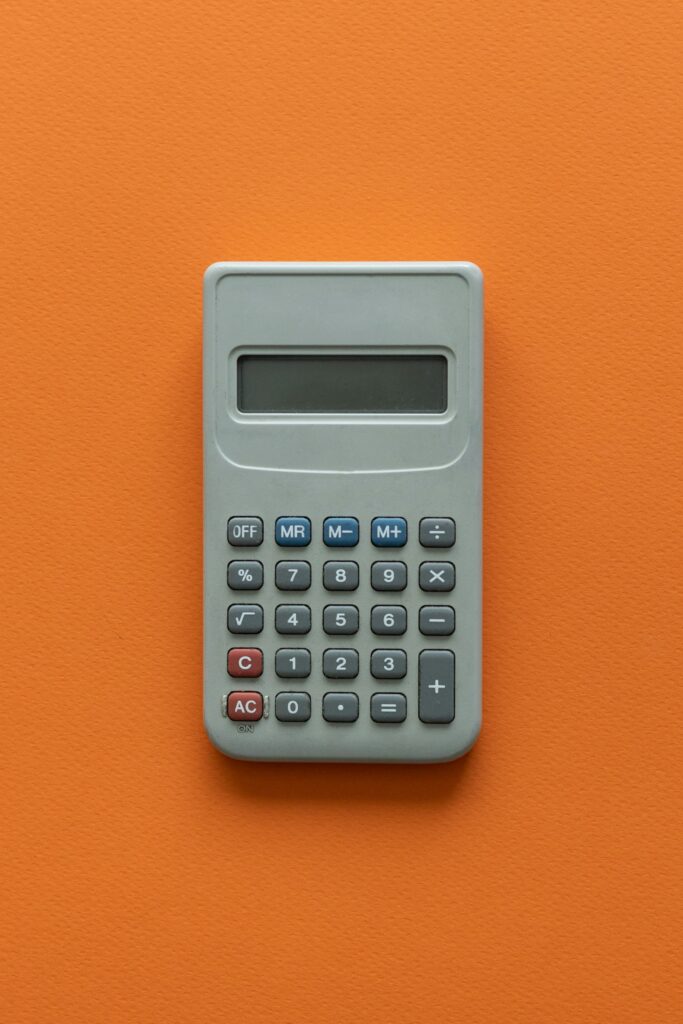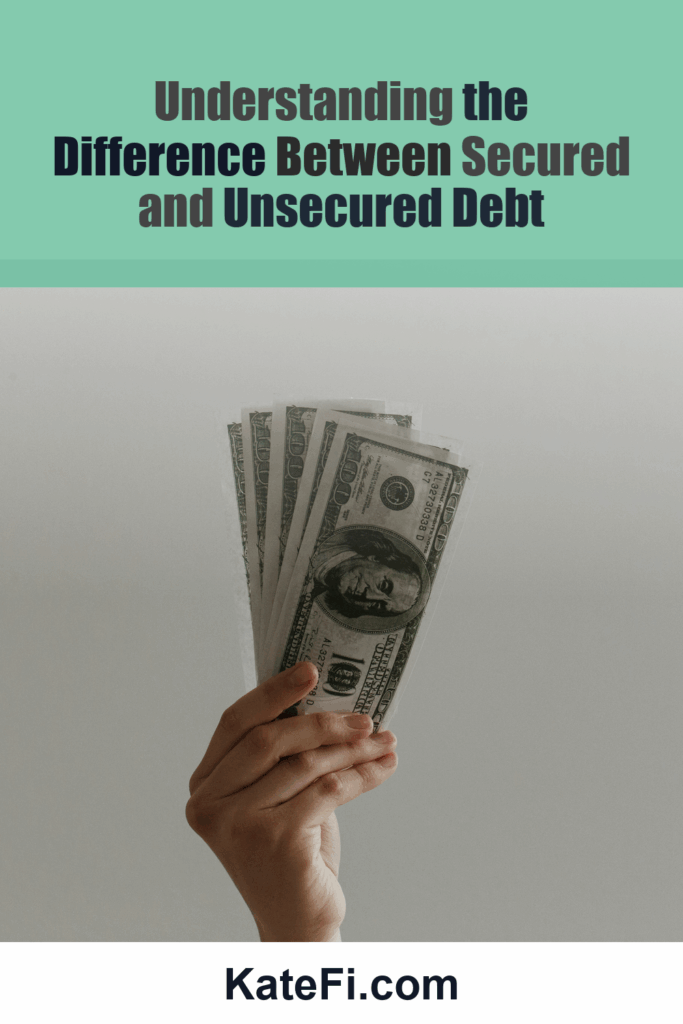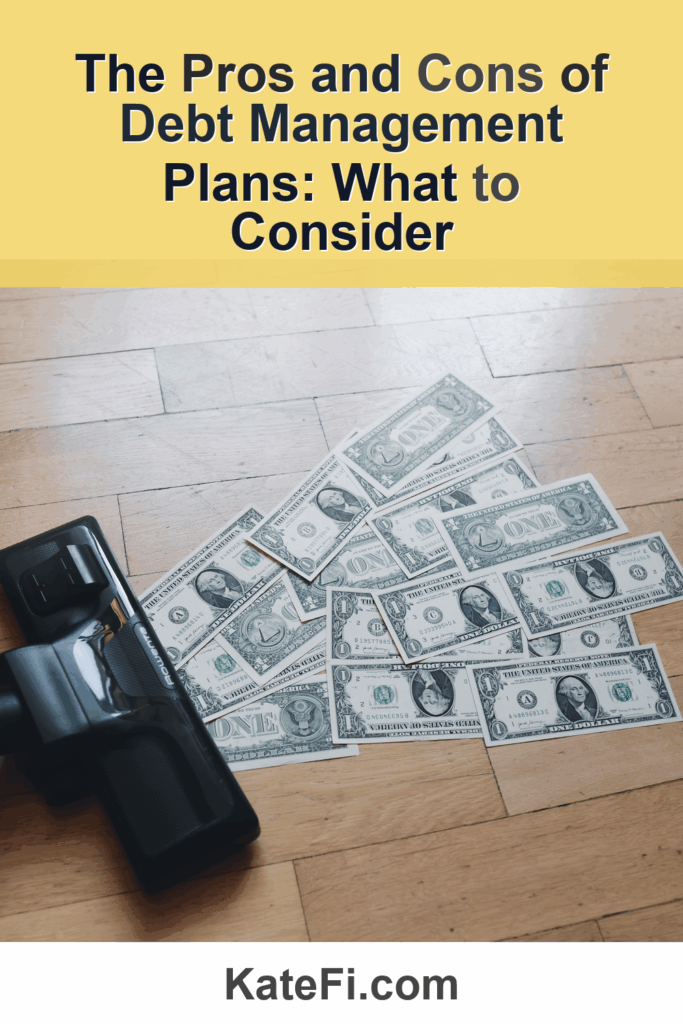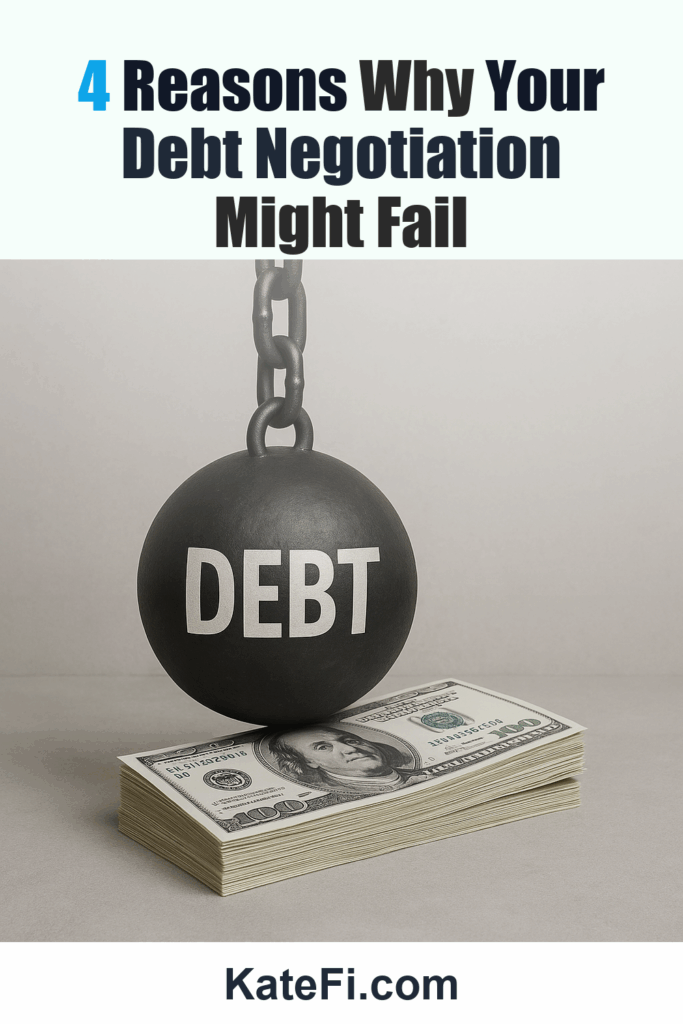A Comparison of Debt Relief Options: Which Is Right for You?
When the weight of debt becomes too heavy to carry, it’s easy to feel overwhelmed. Many individuals find themselves at a crossroads, wondering how to reclaim financial freedom without plunging deeper into uncertainty. While there are various paths to explore, understanding the nuances between debt settlement, debt consolidation, and debt management plans (DMP) is crucial in deciding which approach is right for you.
Love our content? Show your support by following us — pretty please!🥺
FOLLOW ON PINTEREST
Hi! I’m Kate, the face behind KateFi.com—a blog all about making life easier and more affordable.
Let’s delve into a real-life narrative, explore lessons learned, and ultimately guide you on how to navigate your debt relief journey. And remember, a valuable first step is getting a free consultation to review your options with a professional.
Meet Lisa: A Tale of Overwhelming Debt
Lower Your Unsecured Debt
If you have $5,000+ in credit card or personal loan debt, a free consult can review options like settlement or hardship plans.
- One-on-one call to review your debts and goals
- See potential monthly payment reductions
- No obligation to enroll
Not available in IL, KS, OR, TN, UT, WV.
Lisa, a 32-year-old marketing professional, found herself in a cycle of debt after a series of unexpected life events: a job loss, an unexpected medical emergency, and a costly car repair. Despite her best efforts to budget and save, her credit card bills began to pile up. The stress was relentless, and Lisa felt like she was losing control.
Initially, she tried to manage her debts independently, making only the minimum payments. Unfortunately, the balance hardly budged, and she found herself sinking deeper. That’s when she decided it was time to explore debt relief options.
Lisa’s journey led her to discover three primary paths: debt settlement, debt consolidation, and debt management plans. Each option came with its own set of pros and cons, and understanding these was essential to making an informed decision.
Understanding Your Debt Relief Options
Before deciding which route to take, it’s essential to understand how each debt relief option works. Here’s a brief overview:
| Debt Relief Option | What It Is | Pros | Cons |
|---|---|---|---|
| Debt Settlement | Negotiating with creditors to reduce your overall debt. | Lower total debt; quicker resolution. | Potential impact on credit score; fees may apply. |
| Debt Consolidation | Combining multiple debts into a single loan with one monthly payment. | Simplified payments; potential lower interest rates. | May require good credit; some loans may have fees. |
| Debt Management Plan (DMP) | Working with a credit counseling agency to create a repayment plan. | Structured approach; often lower interest rates and fees. | Monthly fees; may affect credit score during the plan. |
Settlement vs. Consolidation vs. DMP: Which is Right for You?
👉 Start Your Free Debt Relief Review
Not available in IL, KS, OR, TN, UT, WV.
Debt Settlement: Is It Worth It?
Lisa discovered that debt settlement could significantly reduce her overall debt. Typically, this process involves hiring a professional to negotiate with creditors on your behalf. For many, the thought of paying less than what they owe can be appealing.
Consider debt settlement if:
- You have a significant amount of unsecured debt (like credit cards).
- You’re facing financial hardship and can’t make minimum payments.
- You’re willing to risk a temporary negative impact on your credit score.
However, the process isn’t without its pitfalls. Settling a debt can lead to tax implications, as forgiven debt may be considered taxable income. Plus, there’s no guarantee that creditors will agree to a settlement, and you could incur fees for the service.
✅ See If You Qualify for Debt Relief
Debt Consolidation: Simplifying Your Finances
On the other hand, Lisa considered debt consolidation as a potential way to simplify her monthly payments. By consolidating her debts into a single loan with a lower interest rate, she could focus on one payment instead of juggling multiple accounts.
Consider debt consolidation if:
- You have multiple debts with high interest rates.
- You have a steady income and can afford a fixed monthly payment.
- You prefer to avoid the complexities of negotiations with creditors.
While this option can lower your monthly payment and improve your cash flow, it may not reduce the total debt owed. Additionally, you may need good credit to secure a favorable loan.
Debt Management Plans: A Supportive Approach
Understand pros/cons of settlement vs consolidation vs DMP for your exact mix of debts.
Not available in IL, KS, OR, TN, UT, WV.
Lisa also explored debt management plans (DMP) through a credit counseling agency. These plans involve working with a counselor who will help you negotiate lower interest rates and create a manageable repayment plan.
Consider a DMP if:
- You want professional guidance to manage your debt.
- You prefer a structured repayment approach.
- You’re committed to sticking to a budget.
While a DMP can be beneficial, it usually comes with a monthly fee, and it may negatively impact your credit score during the repayment period.
Lessons Learned from Lisa’s Journey
After considering all her options, Lisa made the difficult choice of settling her debts. She learned a lot throughout this process:
- Understand Your Finances: Knowing your debts, income, and expenses is crucial before making a decision.
- Seek Professional Help: A consultation can provide insights you may not have considered.
- Be Wary of Scams: Not all debt relief companies are reputable. Always do your research.
Ultimately, Lisa’s journey reinforced the importance of gathering the necessary documentation and preparing for consultations. Important documents include:
- Recent credit card statements
- Income verification (pay stubs or bank statements)
- A list of monthly expenses
Having these items ready can streamline your consultation process, allowing a professional to give tailored advice more quickly.
Impact on Your Credit: What to Expect
One important aspect Lisa grappled with was the potential impact on her credit score. Each option carries different risks. For instance, debt settlement can lead to missed payments, which could lower your credit score. In contrast, consolidation and DMPs may have a less dramatic impact but still reflect on your credit history.
Understanding this impact is vital as it could affect your ability to secure loans in the future.
✅ See If You Qualify for Debt Relief
Questions to Ask Your Counselor
Whether you’re leaning towards settlement, consolidation, or a DMP, having the right questions prepared for your counselor can ensure you’re making the most informed decision possible. Consider asking:
- What are my options based on my financial situation?
- How much will your services cost?
- What impact will this have on my credit score?
- How long will the process take, and what is the expected outcome?
These questions can provide clarity and help you gauge the effectiveness of the proposed strategy.
Conclusion: Charting Your Course to Financial Freedom
Debt can feel like an insurmountable obstacle, but it’s important to remember that relief is possible. Lisa’s journey is just one of many that showcase the importance of understanding your options and taking the right steps toward reclaiming financial freedom. Whether you choose debt settlement, consolidation, or a management plan, having a strong support system and knowledgeable guidance can make a significant difference.
If you’re unsure of where to start or which path to take, we recommend getting a free consultation with a qualified expert who can help you navigate your unique situation.
✅ See If You Qualify for Debt Relief
Important: This content is for education only—not legal, tax, or financial advice. Results and eligible programs vary by situation and state. Fees apply if you enroll and complete a program. Debt relief can affect credit; missed payments may lead to collections/lawsuits. Not available in IL, KS, OR, TN, UT, WV.
By embracing the right approach, you can turn the page on your debt and pave the way toward a brighter financial future. Remember, taking the first step is often the hardest, but it’s also the most important.






















